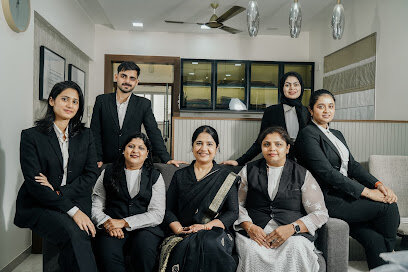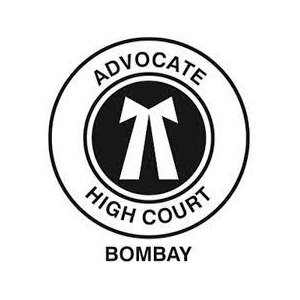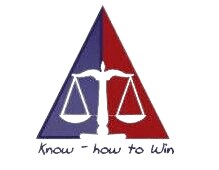Best Collaborative Law Lawyers in Pune
Share your needs with us, get contacted by law firms.
Free. Takes 2 min.
Free Guide to Hiring a Family Lawyer
List of the best lawyers in Pune, India
About Collaborative Law in Pune, India
Collaborative Law is a legal approach that emphasizes cooperative, amicable solutions over adversarial proceedings for resolving disputes. In Pune, India, the method is gaining traction, particularly in family law disputes such as divorce, custody battles, and related matters. The process involves both parties and their respective lawyers working together outside of court to reach a mutually acceptable resolution.
Why You May Need a Lawyer
Seeking legal advice in Collaborative Law can be crucial for several reasons:
- Divorce: When a marriage dissolves, Collaborative Law can help couples negotiate terms amicably, including property division and alimony.
- Child Custody: Collaborative Law can help parents settle on custody arrangements that focus on the best interests of the child.
- Business Disputes: When business partners have disagreements, Collaborative Law can facilitate a fair and mutually beneficial agreement.
- Estate Planning: It helps families resolve issues pertaining to inheritance and distribution of assets without going to court.
- Property Disputes: Collaborative Law can be used to resolve issues related to property ownership and related conflicts.
Local Laws Overview
Key legal aspects relevant to Collaborative Law in Pune include:
- Family Courts Act, 1984: This act helps resolve family disputes in a non-adversarial manner.
- Hindu Marriage Act, 1955: Implications for divorce settlements within the Hindu community.
- Indian Contract Act, 1872: Governs agreements made during the Collaborative Law process.
- Child Custody laws: Both parents are encouraged to reach a consensual agreement focusing on the child's welfare.
- Property Dispute laws: Civil proceedings and arbitration methods that support out-of-court settlements.
Frequently Asked Questions
1. What is Collaborative Law?
Collaborative Law is a legal process where both parties work with their lawyers to reach a settlement without going to court. It focuses on collaboration and cooperative negotiation.
2. How does Collaborative Law differ from traditional divorce?
Unlike traditional divorce, which can be adversarial, Collaborative Law aims to resolve disputes amicably through negotiation and mutual agreement.
3. What types of disputes can be resolved through Collaborative Law?
Family law matters such as divorce and child custody, business disputes, property conflicts, and estate planning issues can be resolved through Collaborative Law.
4. Do both parties need a lawyer in Collaborative Law?
Yes, both parties engage their own specially trained Collaborative Law lawyers to assist in the negotiation and settlement process.
5. Is the agreement reached through Collaborative Law legally binding?
Once both parties agree, the terms can be formalized and submitted to a court to make it legally binding.
6. How long does the Collaborative Law process take?
The duration varies depending on the complexity of the issues and the willingness of both parties to cooperate, but it generally takes less time than traditional court proceedings.
7. Is Collaborative Law suitable for high-conflict situations?
Collaborative Law is best suited for parties who are willing to negotiate and reach a mutually beneficial agreement. It may not be suitable in high-conflict situations where cooperation is lacking.
8. What happens if an agreement cannot be reached through Collaborative Law?
If an agreement cannot be reached, the process terminates, and each party may seek resolution through traditional court proceedings.
9. Can Collaborative Law be used for business disputes?
Yes, Collaborative Law can be effectively used for resolving business disputes, including partnership and contract issues.
10. How do I find a Collaborative Law lawyer in Pune?
Look for lawyers who are specially trained in Collaborative Law. You can start by searching online directories, asking for referrals, or contacting local legal associations.
Additional Resources
Here are some resources that can be helpful:
- Pune Bar Association: Provides a list of certified Collaborative Law practitioners.
- Family Court Pune: Offers resources and information for family law disputes resolved through Collaborative Law.
- Legal Aid Services Authority: Government body offering legal services and resources.
- Integrative Law Institute: Provides training and resources for Collaborative Law.
Next Steps
If you need legal assistance in Collaborative Law, here are the steps to follow:
- Identify and contact a Collaborative Law-trained lawyer in Pune.
- Schedule a consultation to discuss your specific situation and understand your legal options.
- Gather all relevant documents and information pertaining to your dispute.
- Work closely with your lawyer to outline your goals and interests.
- Engage in the Collaborative Law process, focusing on reaching a mutually amicable resolution.
With these steps, you can navigate the Collaborative Law process effectively and aim for a settlement that respects the interests of all parties involved.
Lawzana helps you find the best lawyers and law firms in Pune through a curated and pre-screened list of qualified legal professionals. Our platform offers rankings and detailed profiles of attorneys and law firms, allowing you to compare based on practice areas, including Collaborative Law, experience, and client feedback.
Each profile includes a description of the firm's areas of practice, client reviews, team members and partners, year of establishment, spoken languages, office locations, contact information, social media presence, and any published articles or resources. Most firms on our platform speak English and are experienced in both local and international legal matters.
Get a quote from top-rated law firms in Pune, India — quickly, securely, and without unnecessary hassle.
Disclaimer:
The information provided on this page is for general informational purposes only and does not constitute legal advice. While we strive to ensure the accuracy and relevance of the content, legal information may change over time, and interpretations of the law can vary. You should always consult with a qualified legal professional for advice specific to your situation.
We disclaim all liability for actions taken or not taken based on the content of this page. If you believe any information is incorrect or outdated, please contact us, and we will review and update it where appropriate.















